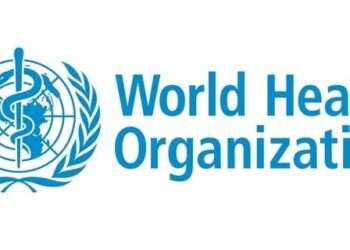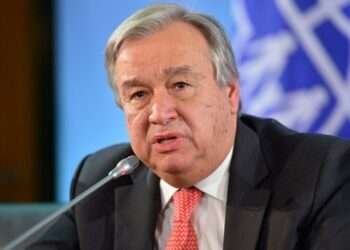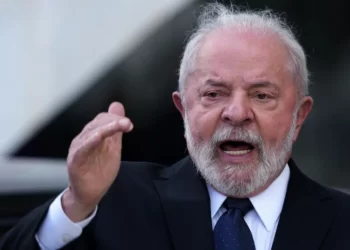Deputy Director-General (DDG) Alan Wolff stated that there is the need to include new initiatives to eliminate tariffs on pharmaceuticals, medical supplies, and medical equipment and to create a global code of conduct on the use of export controls.
According to him, the WTO has provided members with information that has helped them make informed decisions and pull back from imposing trade-restrictive measures. He pointed out that more needs to be done by reducing tariffs that will help make medical equipment assessable to all.
He made this known whilst speaking at a virtual World Economic Forum meeting dubbed ‘the impact of the COVID-19 pandemic on the healthcare industry’.
DDG Wolff stated that the pandemic, like climate change, is a global problem and it requires a global solution. According to him, the world trading system faces two immediate challenges: to facilitate cross border trade in essential goods and services to deal with COVID-19 and to support the global economic recovery.
“The WTO has provided since early in the pandemic the information needed for national governments to make more informed decisions. This was a factor in the pull-back from the imposition of export controls on food, for example.
“Tariffs on pharmaceuticals and medical supplies should be removed. The 1996 Pharmaceutical Agreement should be updated (last done in 2010) to increase product and country coverage (which has dropped from 90% to 66% of world trade). Medical supplies should be included”.
According to DDG Wolf, countries imposing export restrictions should first consider their impact on other countries before imposing the controls. Where feasible, prior notice should be given. Also, export controls should be time-limited, tied to need, and objectively determined.
He further stated that when export controls are being considered, both countries and businesses should recognize that they would pay a high price in terms of future participation in the world economy where they become unreliable suppliers.
“The crisis has stimulated a surge in the use of telemedicine services. Health care providers have increasingly been seeking to provide services across borders, either to foreign patients or more commonly to foreign colleagues or foreign health institutions (e.g. telediagnosis, teleradiology, second opinions).
“International cooperation at the governmental level, in particular among health, IT, telecommunications, and trade policymakers (as well as the industry), is needed to address the challenges of a reliable and sustained increased supply of services related to telemedicine.
“The first goal is to provide patient access to essential services while ensuring safety and privacy. Issues to be addressed involve registration, licensing, qualifications, and their recognition. There is a need for more regulatory cooperation, in particular, to address the divergence of regulations, improve transparency, provide more certainty for services suppliers active in the field of health-related services.
“WTO negotiations will ultimately have to address data flows, privacy, data storage/server localization, new services market access commitments that will have a direct impact on the remote provision of health services especially if such provision is across borders.
“It is imperative to maintain the free exchange across borders of ideas, inputs, and financing to help generate new ideas and technologies”, said DDG Wolf.
According to DDG Wolf the fact that the trade relationship between the United States and China is fraught with mistrust and difficulties, and that the U.S. and Europe are busily imposing increased tariffs arising out of the Boeing-Airbus dispute, is no basis on which to assume that it will be impossible for those with either sustained or temporary difficulties to work together against a common threat.
He pointed out that throughout history, this has been true of rivals. A prime example is the composition of the allies during the Second World War. Today we confront enormous health and economic challenges, not to mention a growing climate crisis. These crises demand collective responses.
“Trade and trade policy cannot alone solve today’s problems. And they are likelier to reflect geopolitical tensions than to resolve them. But trade can contribute to solutions. All countries have substantial common interests. International institutions like the WTO exist to make it easier for governments to pursue shared interests. Rivalry should not become an excuse for inaction”.























